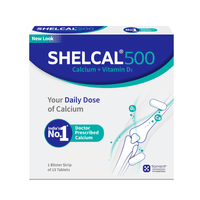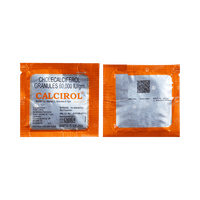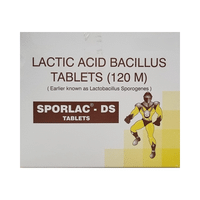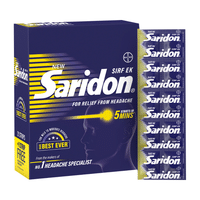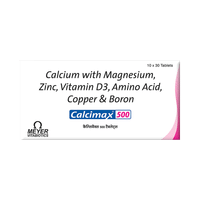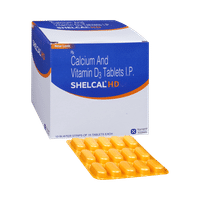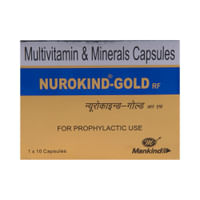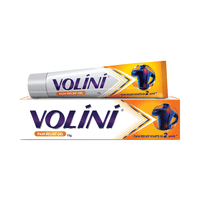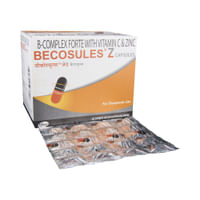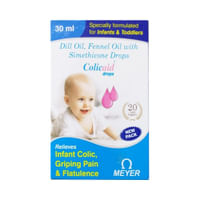Actifed Plus Suspension
food interaction for Actifed Plus
alcohol interaction for Actifed Plus
pregnancy interaction for Actifed Plus
lactation interaction for Actifed Plus
food
alcohol
pregnancy
lactation
Actifed Plus Suspension may be taken with or without food, but it is better to take it at a fixed time.
None
None
CAUTION
It is unsafe to consume alcohol with Actifed Plus Suspension.
UNSAFE
Actifed Plus Suspension may be unsafe to use during pregnancy. Although there are limited studies in humans, animal studies have shown harmful effects on the developing baby. Your doctor will weigh the benefits and any potential risks before prescribing it to you. Please consult your doctor.
CONSULT YOUR DOCTOR
Information regarding the use of Actifed Plus Suspension during breastfeeding is not available. Please consult your doctor.
CONSULT YOUR DOCTOR
SALT INFORMATION FOR Actifed Plus
Paracetamol(125mg)
Uses
Paracetamol is used for pain relief and fever. It is used to relieve pain in conditions like headache, muscle pain, or dental pain.
How it works
Paracetamol is an analgesic (pain reliever) and anti-pyretic (fever reducer). It works by blocking the release of certain chemical messengers that cause pain and fever.
Common side effects
Nausea, Vomiting, Insomnia (difficulty in sleeping), Headache, Constipation, Itching, Nephropathy, Hypersensitivity, Platelet disorders, Depression, Confusion, Hallucination, Abnormal vision, Hypoglycemia (low blood glucose level), Sterile pyuria, Liver toxicity, Hemorrhage
Triprolidine(0.625mg)
Uses
Triprolidine is used in the treatment of allergic conditions.
How it works
Triprolidine is an antihistaminic medication. It blocks the action of certain chemical messengers that are responsible for inflammation, congestion, itching, and other allergic reactions.
Common side effects
Sleepiness
Phenylpropanolamine(6.25mg)
Uses
Phenylpropanolamine is used in the treatment of allergic conditions.
How it works
Phenylpropanolamine belongs to a class of medications called nasal decongestants. It stimulates receptors on blood vessels in the nose and sinuses leading to its constriction and reduction in blood flow thereby relieving congestion.
.Common side effects
Systemic hypertension (high blood pressure), Nausea, Insomnia (difficulty in sleeping), Palpitations
SUBSTITUTES FOR Actifed Plus
No substitutes foundExpert advice FOR Actifed Plus
- Paracetamol should be taken with food or milk to prevent upset stomach.
- Take it as per the dose and duration prescribed by your doctor. Long term use may lead to serious complications such as stomach bleeding and kidney problems.
- Do not take indigestion remedies (antacids) within 2 hours of taking Paracetamol.
- Avoid consuming alcohol while taking this medicine as it can increase your risk of stomach problems.
- Inform your doctor if you have liver disease as your dose may need to be adjusted.
- Your doctor may regularly monitor your kidney function, liver function and levels of blood components if you are taking this medicine for long-term treatment.
Frequently asked questions FOR Actifed Plus
Paracetamol
Q. What if I vomit after taking Paracetamol?
If you vomit in less than 30 minutes after having a dose of Paracetamol tablets or syrup, retake the same dose again. If you vomit after 30 minutes of a dose, you do not need to take another one until the next standard dose.
Q. When will I feel better after taking the Paracetamol?
Usually, you will start feeling better after about half an hour of taking a Paracetamol.
Q. How often can I take the Paracetamol?
You should only take four doses of Paracetamol in 24 hours. There should be a gap of at least 4 hours between two doses. Do not take Paracetamol for more than 3 days without consulting a doctor first.
Triprolidine
Q. Dose Triprolidine cause drowsiness/does it make you feel drowsy/ sleepy?
Yes. Drowsiness and dizziness are common side effects of Triprolidine
Q. Is Triprolidine a sedative?
Triprolidine can produce effects like inducing sleep and drowsiness. However, it is not used as a sedative drug
Q. Is Triprolidine an expectorant?
No. Triprolidine is an anti-histamine drug used to relieve allergic symptoms of common cold and cough. It may be included in expectorant (aid expulsion of mucus as cough) or antitussive (used for dry cough) cough/cold preparations
Phenylpropanolamine
Q. Is phenylpropanolamine the same as phenylephrine?
Phenylpropanolamine and phenylephrine are different drugs belonging to the same class of medications (nasal decongestants). Both are used to relieve blocked nose or sinuses caused by common cold and seasonal nasal allergies (hay fever)
Q. Does Phenylpropanolamine cause stroke?
Phenylpropanolamine has shown to increase the risk of hemorrhagic stroke (bleeding in the brain). Women are at a higher risk.
Q. Is Phenylpropanolamine a controlled substance?
Phenylpropanolamine is a controlled substance since it can be used for manufacturing of illegal drugs













